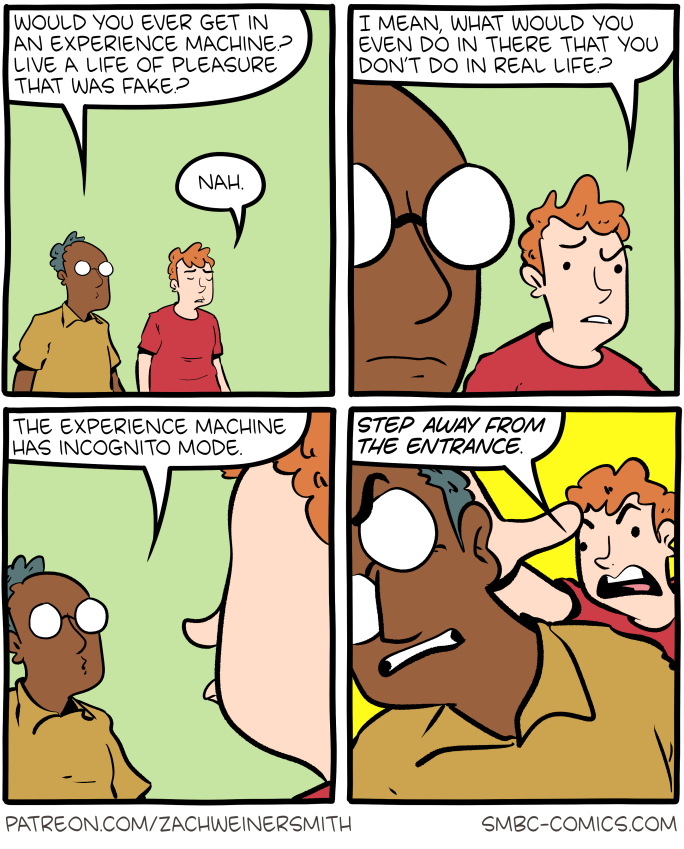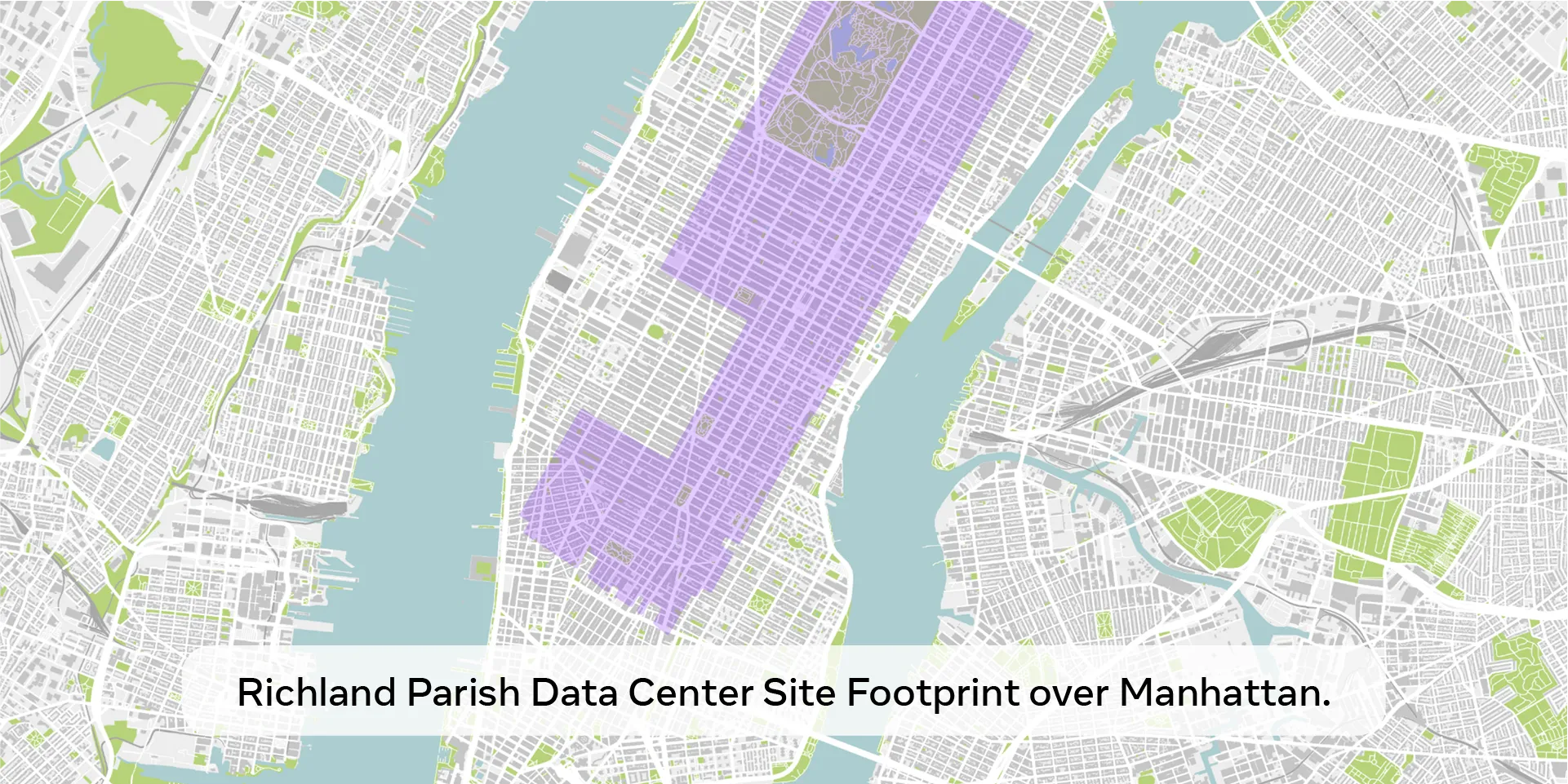Today's links
- The case for a Canadian wealth tax: Lessons learned from previous attempts, applicable all over the world.
- Hey look at this: Delights to delectate.
- Object permanence: 2005, 2010, 2015, 2020
- Upcoming appearances: Where to find me.
- Recent appearances: Where I've been.
- Latest books: You keep readin' em, I'll keep writin' 'em.
- Upcoming books: Like I said, I'll keep writin' 'em.
- Colophon: All the rest.
The case for a Canadian wealth tax (permalink)
A major problem with letting billionaires decide how your country is run is that they will back whichever psycho promises the lowest taxes and least regulation, no matter how completely batshit and unfit that person is:
https://www.hamiltonnolan.com/p/nations-are-people
Billionaires have farcical, almost unimaginable resources. These let them take over whole political parties, even "left" parties, with the result that all real electoral options disappear. Voting for the other party gets you a different set of aesthetics, but the same existential threats to the human race and the planet:
After generations of increasingly oligarch-friendly policies and billionaire entryism into the Democratic Party, America may well be cooked, a total write-off for generations to come. The path to saving the world and our species arguably lies through strengthening other countries to resist American psychos and protect the planet from the consequences of their brainwormed leadership.
Writing for Jacobin, Alex Hemingway sets out a plan for imposing a wealth-tax on Canada's oligarchs, one that incorporates lessons from previous attempts at such a tax:
https://jacobin.com/2025/06/wealth-tax-canada-inequality-austerity/
Even on the left, the idea of a wealth-tax is controversial – not because leftists are sympathetic to billionaires, but because they are skeptical that a wealth tax can be carried out. It's a practical, not an ideological objection:
https://pileusmmt.libsyn.com/196-the-problem-with-wealth-taxes-with-steven-hail-part-1
After all, under capitalism, wealth always grows faster than the economy at large, meaning that over time, the rich will get steadily richer, and inequality will widen and widen:
https://memex.craphound.com/2014/06/24/thomas-pikettys-capital-in-the-21st-century/
Ideally, we would counter the trend of wealth piling up into dynastic fortunes with continuous redistribution and predistribution: taxing capital gains at the same rate (or a higher rate) than income, so that income from labor isn't treated worse than income from ownership; steeply graded progressive taxes, with top rates of 70-99%, high inheritance taxes, and so on. We had a system like that, from the end of WWII (when the rich were poorer than they'd been in centuries, with their influence in tatters) until the Reagan era (when the rich had rebuilt their fortunes and were able to seize the reins of power). In the 45 years since the rise of the new oligarchy, we've lived through accelerating wealth accumulation, and as the rich got richer, they used their wealth to dismantle any barrier to creating new aristocratic dynasties.
So here we are, trapped in the new oligarchy. It's too late to rely on income taxes, not if we're going to euthanize enough rentiers to free out politics from their toxic influence and save the human race any of several foreseeable mass-extinction events. Making the ultra-rich poor again is going to require new tactics.
In Canada, the 1% owns 29% of the country's wealth. The 87 richest families in Canada control as much wealth as the bottom 12 million Canadians combined. This is better than the US (where the 1% own 35% of the country), but not by much:
https://www.policyalternatives.ca/wp-content/uploads/attachments/Born%20to%20Win.pdf
Can we make a wealth tax work? Here's Hemingway's program for making it work in Canada:
- Make it apply to all kinds of wealth equally. No carve-outs for real-estate, which makes it very easy to shift wealth among asset-classes to duck the tax;
-
Aim it at the super-rich alone. Avoid even the upper middle-class, who lack the liquid assets to pay the tax and could get wrecked if they have to liquidate their holdings at the same time as everyone else, which will depress asset prices;
-
Use third-party assessments of asset values. Don't take billionaires' word for how much their assets are worth! Canada's got an advantage here, thanks to the Canada Revenue Agency's requirement for financial institutions to report their account holders' income, including capital gains. Canada's also recently created "beneficial owner" registries that record the true owners of assets;
-
Use lifestyle audits: anyone caught engaging in tax-evasion will face severe penalties, as will the enablers at financial services firms that help them.
One frequent objection to high taxes is that it encourages capital flight – rich people hopping to another territory to avoid taxation. That's a reasonable fear, given how pants-wettingly terrified the rich are of paying tax. Hemingway points out that a wealth tax is different from an income tax – income taxes are levied on the outcome of productive activities, while wealth taxes target accumulated wealth. High income taxes can starve a country of the capital it needs for a productive economy, but that's not the case with wealth taxes.
Hemingway points to the OECD's Common Reporting Standard, through which more than 100 countries have agreed to share financial information, which will help Canada catch billionaires as they funnel their wealth offshore. Meanwhile, if the rich try to move with their money, we can hit them with an exit tax, like the 40% that Elizabeth Warren has proposed.
It's an article of faith that the rich will move offshore at the first hint of a wealth tax, but the research shows that rich people often have reasons to stay that trump their taxophobia. The economic effect of rich people Going Galt is pretty darned small:
The modern prophet of oligarchy and its origins is the French economist Thomas Piketty. In a recent Le Monde column, Piketty examines the failure of a French wealth tax proposal that would have shaved a modest 2% off the fortunes of the 1,800 French people with more than €100 million:
https://www.lemonde.fr/blog/piketty/2025/06/17/the-senate-beside-the-story/
The proposal passed the National Assembly, only to die in the Senate, an institution with a long history of pro-oligarchic activism (the Senate killed every French income tax passed by the Assembly from 1896-1914). The Assembly's wealth tax addressed the problem of tax exiles, levying the wealth tax for 5 years after an oligarch relocated. For Piketty, this didn't go far enough: he wants a pro-rated tax based on the number of years an oligarch spent in France in their lifetime: if you were educated and cared for at French expense from birth and went on to become a billionaire, then a modest share of your wealth would forever be owed to the country that made it possible. Piketty says that a wealth tax could be paid in shares instead of cash, with the stock going into a trust for workers, who would get board seats as well.
He points out that decarbonization is going to require large sacrifices from all of us, but that these will be impossible to demand with a straight face so long as the super-rich are paying taxes that are trivial relative to their assets and income.
Hey look at this (permalink)

- Don't Rank Cuomo, the game https://radiatoryang.itch.io/cuomo (h/t Super Punch)
-
FTC competition comment jointly submitted by EFF and Authors Alliance https://www.eff.org/files/2025/06/05/ftc_competition_comment_jointly_submitted_by_eff_and_authorsalliance.pdf
-
McMansion Hell urges all New Yorkers to Rank Zohran Mamdani #1 for Mayor of NYC https://mcmansionhell.com/post/786540193484341248/mcmansion-hell-urges-all-new-yorkers-to-rank
-
Arbitration Information https://arbitrationinformation.org/docs/problems/
-
Apple to Australians: You’re Too Stupid to Choose Your Own Apps https://www.eff.org/deeplinks/2025/06/apple-australians-youre-too-stupid-choose-your-own-apps
Object permanence (permalink)
#20yrsago Snapple floods Manhattan with 17.5 tons of frozen kiwi-strawberry slurry https://nielsenhayden.com/makinglight/archives/006460.html#006460
#20yrsago Beloved Toronto singing cowboy/mayoral candidate Ben Kerr, RIP https://www.blogto.com/city/2005/06/ben_kerr_a_toronto_legend_passes_away/
#20yrsago Heinlein’s house https://web.archive.org/web/20050625235954/http://www.heinleinsociety.org/rah/history/bonnydoon1.html
#20yrsago Banned Nepali radio station transmits via megaphone https://reliefweb.int/report/nepal/banned-air-nepal-news-radio-hits-streets
#20yrsago Queen Liz: Sony remotes are too hard to use https://web.archive.org/web/20050815080728/http://www.macworld.co.uk/news/index.cfm?email&NewsID=11914
#15yrsago ASCAP raising money to fight Free Culture https://memex.craphound.com/2010/06/23/ascap-raising-money-to-fight-free-culture/
#15yrsago Original Pac-Man sketches https://www.control-online.nl/2010/06/22/iwatani-toont-gamesgeschiedenis-in-meest-pure-vorm/
#15yrsago Viacom v Internet: round one to Internet https://memex.craphound.com/2010/06/23/viacom-v-internet-round-one-to-internet/
#15yrsago A Canadian author’s perspective on “radical extremism” and copyright https://memex.craphound.com/2010/06/23/a-canadian-authors-perspective-on-radical-extremism-and-copyright/
#15yrsago Gate guarded McMansion suburb in Walt Disney Worldhttps://insidethemagic.net/2010/06/disney-unveils-golden-oak-luxury-homes-offering-a-chance-to-live-in-the-walt-disney-world-resort/
#15yrsago Canadian Heritage Minister declares war on copyright reformers https://web.archive.org/web/20100626073040/http://www.michaelgeist.ca/content/view/5138/125/
#15yrsago Bruce Sterling’s Shareable.net story about astroturfer gulag https://www.shareable.net/the-exterminators-want-ad/
#15yrsago Corruption: FCC’s closed-door meetings on open Internet https://web.archive.org/web/20100626222659/http://blog.broadband.gov/?entryId=518087
#15yrsago Canadian Heritage Minister smears DMCA opponents as “radical extremists” https://www.michaelgeist.ca/2010/06/moore-and-radical-extremists/
#15yrsago US IP Czar’s report sells out the American public to Big Content https://memex.craphound.com/2010/06/22/us-ip-czars-report-sells-out-the-american-public-to-big-content/
#15yrsago I Love Paree: new sf story podcast https://craphound.com/news/2010/06/22/i-love-paree-part-1/
#10yrsago Australia’s own Immortan Joe turns off the water, I mean, Internet https://arstechnica.com/tech-policy/2015/06/australia-passes-controversial-anti-piracy-web-censorship-law/
#10yrsago GCHQ psychological operations squad targeted Britons for manipulation https://theintercept.com/2015/06/22/controversial-gchq-unit-domestic-law-enforcement-propaganda/
#10yrsago GCHQ hacking squad worried about getting sued for copyright violation https://theintercept.com/2015/06/22/gchq-reverse-engineering-warrants/
#10yrsago The Girl With the Parrot on Her Head https://memex.craphound.com/2015/06/22/the-girl-with-the-parrot-on-her-head/
#10yrsago FDA & FTC mull homeopathy’s future https://sciencebasedmedicine.org/homeopathic-industry-and-its-acolytes-make-poor-showing-before-fda/
#10yrsago Tie your shoes the Ukrainian way http://shnurovka.com/en/step-by-step-instructions-english/
#10yrsago Outstanding paper on the impact of ebook DRM on readers, writers, publishers and distributors https://www.law.berkeley.edu/files/Bittar_Ana_Carolina.pdf
#10yrsago You’ll falafel about this horrifying new pita-sized crypto-key-sniffing hack https://www.wired.com/2015/06/radio-bug-can-steal-laptop-crypto-keys-fits-inside-pita/
#5yrsago Against AI phrenology https://pluralistic.net/2020/06/23/cryptocidal-maniacs/#phrenology
#5yrsago Privacy in tracing tokens https://pluralistic.net/2020/06/23/cryptocidal-maniacs/#trace-together
#5yrsago Congress wants to read all your DMs https://pluralistic.net/2020/06/23/cryptocidal-maniacs/#crypto-wars
#5yrsago Blueleaks https://pluralistic.net/2020/06/23/cryptocidal-maniacs/#ddosecrets
#5yrsago Surveillance electoralism https://pluralistic.net/2020/06/23/cryptocidal-maniacs/#aaronsw
#5yrsago The real cyberwar is Goliath, slaughtering an army of Davidshttps://pluralistic.net/2020/06/22/jobs-guarantee/#selection-bias
#5yrsago The Case for a Job Guarantee https://pluralistic.net/2020/06/22/jobs-guarantee/#job-guarantee
Upcoming appearances (permalink)

- London: How To Academy with Riley Quinn, Jul 1
https://howtoacademy.com/events/cory-doctorow-the-fight-against-the-big-tech-oligarchy/ -
Manchester: Picks and Shovels at Blackwell's Bookshop, Jul 2
https://www.eventbrite.co.uk/e/an-evening-with-cory-doctorow-tickets-1308451968059 -
Manchester: Co-operatives UK Co-op Congress keynote, Jul 4
https://www.uk.coop/events-and-training/events-calendar/co-op-congress-2025-book-your-place -
Virtual: ORG at 20: in conversation with Maria Farrell, Jul 16
https://www.openrightsgroup.org/events/org-at-20-cory-doctorow-in-conversation-with-maria-farrell/ -
DC: Enshittification at Politics and Prose, Oct 8
https://politics-prose.com/cory-doctorow-10825 -
New Orleans: DeepSouthCon63, Oct 10-12, 2025
http://www.contraflowscifi.org/ -
San Francisco: Enshittification at Public Works (The Booksmith), Oct 20
https://app.gopassage.com/events/doctorow25
Recent appearances (permalink)
- Democrats Abroad
https://creators.spotify.com/pod/profile/demsabroadca/episodes/Cory-Doctorow-on-Enshittification-e34blmg/a-ac0jn7i -
FediForum Keynote
https://www.youtube.com/watch?v=7_Gs1t0qe78 -
Science Fiction is EXPOSING Scams and AI Dystopia (Bad Faith)
https://www.youtube.com/watch?v=SlrKlp_Iiko
Latest books (permalink)
-
- Picks and Shovels: a sequel to "Red Team Blues," about the heroic era of the PC, Tor Books (US), Head of Zeus (UK), February 2025 (https://us.macmillan.com/books/9781250865908/picksandshovels).
- The Bezzle: a sequel to "Red Team Blues," about prison-tech and other grifts, Tor Books (US), Head of Zeus (UK), February 2024 (the-bezzle.org).
-
"The Lost Cause:" a solarpunk novel of hope in the climate emergency, Tor Books (US), Head of Zeus (UK), November 2023 (http://lost-cause.org).
-
"The Internet Con": A nonfiction book about interoperability and Big Tech (Verso) September 2023 (http://seizethemeansofcomputation.org). Signed copies at Book Soup (https://www.booksoup.com/book/9781804291245).
-
"Red Team Blues": "A grabby, compulsive thriller that will leave you knowing more about how the world works than you did before." Tor Books http://redteamblues.com.
-
"Chokepoint Capitalism: How to Beat Big Tech, Tame Big Content, and Get Artists Paid, with Rebecca Giblin", on how to unrig the markets for creative labor, Beacon Press/Scribe 2022 https://chokepointcapitalism.com
-
"Attack Surface": The third Little Brother novel, a standalone technothriller for adults. The Washington Post called it "a political cyberthriller, vigorous, bold and savvy about the limits of revolution and resistance."
-
"How to Destroy Surveillance Capitalism": an anti-monopoly pamphlet analyzing the true harms of surveillance capitalism and proposing a solution. https://onezero.medium.com/how-to-destroy-surveillance-capitalism-8135e6744d59?sk=f6cd10e54e20a07d4c6d0f3ac011af6b)
-
"Little Brother/Homeland": A reissue omnibus edition with a new introduction by Edward Snowden: https://us.macmillan.com/books/9781250774583.
-
"Poesy the Monster Slayer" a picture book about monsters, bedtime, gender, and kicking ass. Order here: https://us.macmillan.com/books/9781626723627.
Upcoming books (permalink)
- Enshittification: Why Everything Suddenly Got Worse and What to Do About It, Farrar, Straus, Giroux, October 7 2025
https://us.macmillan.com/books/9780374619329/enshittification/ -
Unauthorized Bread: a middle-grades graphic novel adapted from my novella about refugees, toasters and DRM, FirstSecond, 2026
-
Enshittification, Why Everything Suddenly Got Worse and What to Do About It (the graphic novel), Firstsecond, 2026
-
The Memex Method, Farrar, Straus, Giroux, 2026
Colophon (permalink)
Today's top sources:
Currently writing:
- A Little Brother short story about DIY insulin PLANNING

This work – excluding any serialized fiction – is licensed under a Creative Commons Attribution 4.0 license. That means you can use it any way you like, including commercially, provided that you attribute it to me, Cory Doctorow, and include a link to pluralistic.net.
https://creativecommons.org/licenses/by/4.0/
Quotations and images are not included in this license; they are included either under a limitation or exception to copyright, or on the basis of a separate license. Please exercise caution.
How to get Pluralistic:
Blog (no ads, tracking, or data-collection):
Newsletter (no ads, tracking, or data-collection):
https://pluralistic.net/plura-list
Mastodon (no ads, tracking, or data-collection):
Medium (no ads, paywalled):
Twitter (mass-scale, unrestricted, third-party surveillance and advertising):
Tumblr (mass-scale, unrestricted, third-party surveillance and advertising):
https://mostlysignssomeportents.tumblr.com/tagged/pluralistic
"When life gives you SARS, you make sarsaparilla" -Joey "Accordion Guy" DeVilla
READ CAREFULLY: By reading this, you agree, on behalf of your employer, to release me from all obligations and waivers arising from any and all NON-NEGOTIATED agreements, licenses, terms-of-service, shrinkwrap, clickwrap, browsewrap, confidentiality, non-disclosure, non-compete and acceptable use policies ("BOGUS AGREEMENTS") that I have entered into with your employer, its partners, licensors, agents and assigns, in perpetuity, without prejudice to my ongoing rights and privileges. You further represent that you have the authority to release me from any BOGUS AGREEMENTS on behalf of your employer.
ISSN: 3066-764X












